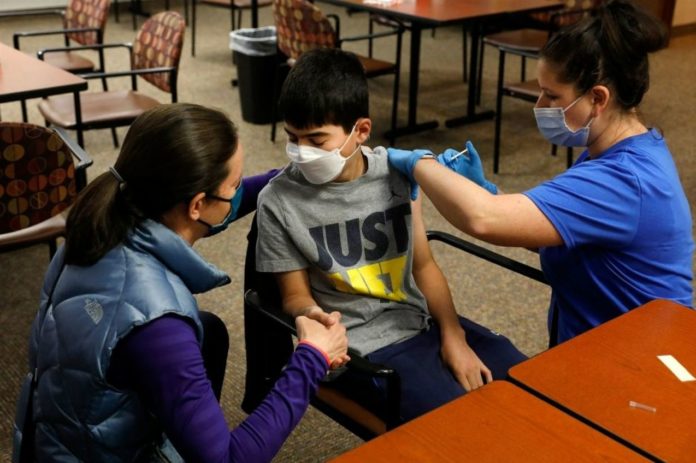New research, published in the Archives of Disease in Childhood, found that the side effects of the Pfizer-BioNTech COVID-19 vaccine are anticipated to be mild to moderate and resolve fast in 12-15-year-olds who are at high risk of complications after infection due to certain comorbid illnesses.
Although the study numbers are small, the data are representative of the teens most likely to benefit from the immunization and should provide confidence to parents and physicians, according to the authors.
Healthy children infected with COVID-19 usually have a moderate illness, but some existing diseases, notably neurological problems, are associated with severe disease.
According to the authors, these high-risk youngsters were protected to limit their chance of infection and would not have been included in early vaccine safety studies.
The Joint Committee on Vaccination and Immunisation (JCVI) of the United Kingdom recommended that children aged 12 and up with severe neurological disabilities, who are prone to recurrent respiratory infections and have extensive care needs, be given the COVID-19 vaccine.
Given the unknown side effects of immunisation in this diverse and fragile population, the authors urged the parents of 27 of these children to keep track of any side effects from subsequent COVID-19 vaccines for each child.
The children were aged between 12 and 15; three were hospital inpatients; 16 were boys and most (21) were white.
They had various neurological conditions, including muscular dystrophy and cerebral palsy, plus a range of coexisting medical conditions, such as epilepsy, congenital heart defects, and immune deficiency, for which they were receiving drug treatment of various kinds.
The reported side effects were all mild to moderate, with the exception of one child who experienced severe fatigue and discomfort, combined with increased agitation. One family also reported that seizure type changed to clusters, although this had resolved a week later.
In all, there were 8 ‘events’ in 6 children after the first dose, all of which resolved within 72 hours: mild rash; headache; diarrhoea; presumed sore throat; neck pain; difficulty sleeping; and low blood glucose.
After the second dose, 8 additional events occurred in 5 children: diarrhoea; vomiting; armpit swelling; and blisters around the mouth.
Paracetamol use after the first dose was high and fever was more common than reported in studies of adults (13% vs 4% in 16-55 year olds). But all recorded side effects cleared up within a week.
“Numbers were small, but these data are especially important as they are representative of the children who are most likely to benefit from vaccination, and parents and clinicians may have concerns regarding an increased risk of unexpected events,” note the authors.
“The parents choosing to take up this vaccination at a time when it was off- licence, with little available safety data, did so because they (and their clinicians) believed their children to be at high risk of COVID-19 disease. Indeed, many had been shielding and felt that vaccination would make a significant difference to their lives,” the authors add.
Photo by JEFF KOWALSKY/AFP via Getty Images
